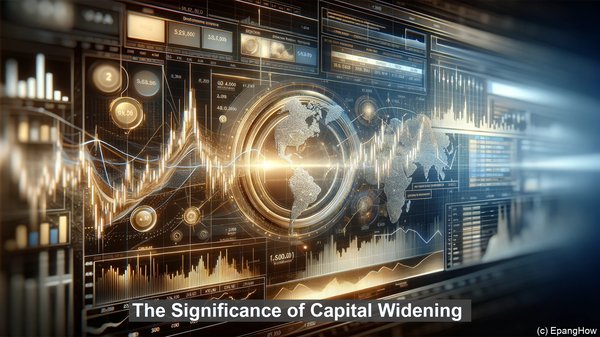Introduction: The Essence of Capital
Hello, everyone! In the world of economics, the notion of capital plays a pivotal role. It encompasses various assets, both tangible and intangible, that are utilized in the production of goods and services. Today, we’ll be focusing on two specific aspects of capital: capital deepening and capital widening. While they may sound similar, they possess distinct characteristics and implications. Let’s dive in!
Capital Deepening: Going Beyond the Surface
Capital deepening refers to a scenario where the quantity of capital per worker increases. In simpler terms, it’s about augmenting the tools, machinery, or technology available to an individual worker. This can be achieved through various means, such as investing in new equipment or adopting more advanced software. The underlying idea is to enhance the productivity of each worker, leading to an overall increase in output.
The Benefits of Capital Deepening
Capital deepening brings forth a multitude of advantages. Firstly, it enables workers to produce more within the same time frame, thereby boosting efficiency. Additionally, it often leads to a rise in wages, as the increased productivity translates into higher output and, subsequently, greater profits. Moreover, capital deepening is closely linked to technological advancements, fostering innovation and progress within industries.

Capital Widening: Expanding the Horizon
While capital deepening focuses on the individual worker, capital widening takes a broader perspective. It involves an increase in the overall capital stock of a nation or industry. This can be accomplished through measures like attracting foreign investment, encouraging domestic savings, or implementing policies that facilitate capital accumulation. The objective is to ensure that the economy has a substantial pool of capital, which can then be utilized for various purposes.
The Significance of Capital Widening
Capital widening is crucial for several reasons. Firstly, it allows for the expansion of industries, enabling them to meet growing demands. Moreover, a higher capital stock often translates into increased employment opportunities, as more resources are available for businesses to expand. Additionally, capital widening can contribute to the overall stability of an economy, as it provides a cushion during times of economic downturn.
The Interplay: Deepening and Widening
While capital deepening and capital widening are distinct concepts, they are not mutually exclusive. In fact, they often go hand in hand. A nation or industry that focuses solely on capital deepening may face limitations in terms of scalability. On the other hand, a sole emphasis on capital widening without ensuring the productivity of each worker may result in inefficiencies. Striking a balance between the two is crucial for sustainable economic growth.

